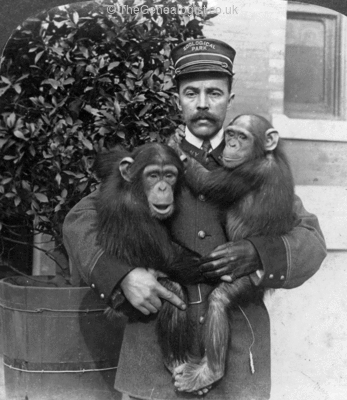
At Olympia I caught up with Dr Ian Galbraith from the National Wills project and asked him to give us a few tips about what people should do if they are searching for will records.
“Well the big problem with wills is you can not always tell where the will might have been proved.” he said.
“If you know your ancestors came from a certain place you’ve gotta fix on where their birth records might be, marriage records maybe where they died. With a will although in most cases you probably have an idea where it is. Wills did get proved all over the place, maybe very far from where you think.
“So when you’re trying to find a will you might go for the obvious places and find there’s nothing there. That doesn’t mean to say that there isn’t a will that’s been proved somewhere else. So it means that if you want to unlock the value of information which is in wills.
“I mean wills are one of the best single sources for the family historian.
“To find it you really need to have access to an index which covers the whole country not just individual counties and that’s what we’ve been trying to do and we’ve got coverage of virtually every county in England.
“Its not complete yet for every county but its the single biggest set of indexes for English probate records.
“That’s complimented also by an increasing collection of digitized images of wills. For example for Oxfordshire, Cheshire, York and a lot of abstracts of wills. Now abstracts make it a lot easier sometimes to find out what’s in a will because somebody else has done the hard work of reading it and transcribing it. They may not put all the text in there but there’s an awful lot of legalese and what they left to the church for candles and so on, masses to be said. But the salient stuff…what they left and to whom they left things that’s in the wills and they are enormously rich things.
“They give you a huge access to the families and the friends of the people who died because they will name them as beneficiaries; so a typical will will contain an average of ten names of other people besides the testator and probably at least half of these people will have different surnames
from the testator.
“So once you get into a will you can suddenly find you’ve got an awful lot more information than you started with. Other leads to follow up. It comes back to the issue of finding them in the first place.”
“Great!” I said, feeling that we had got an enormous amount of useful information from the interview. “And so your website is part of the origins.net?”
“Yes.” he replied. “Yes, Origins.net has been around now for oh, the best part of fifteen years but, erm, we started to concentrate on probate records about five years ago. We already had a reasonable collection but we realized that this is something that we really wanted to look at seriously, because it was one of the big problem areas.
“Births marriages and deaths, parish registers; yeah, there are lots of sites you can go and get really good collections of these. Census records, yeah. Now these are the primary places you’re going to look. You’re going to look at census, you’re going to look at Births, Marriages and Deaths. But where do you go next?
“And one of the major places, perhaps the most important single place to go next is wills; if you can find them. And bear in mind also even if your ancestor didn’t leave a will there’s a pretty high chance they’ll be mentioned in the will left by somebody else.
“So so don’t worry, oh my ancestors didn’t leave wills. Not true! All kinds of people left wills. They can be very poor and very rich. It is not just the rich who left wills. Some wills you wonder why. This guy’s got nothing but he’d still make a will and leave it to his relations or to his friends mentioned by name.
“So it really is well worth looking into wills.”
“Great; thank you very much. That is very useful.” I said. “Thank you.”
One of the modules in my popular course in English/Welsh Family History looks at will records. Want to unravel the tangled roots and branches of your family tree?
Become a more knowledgeable researcher with this course.
 Send to Kindle
Send to Kindle

















